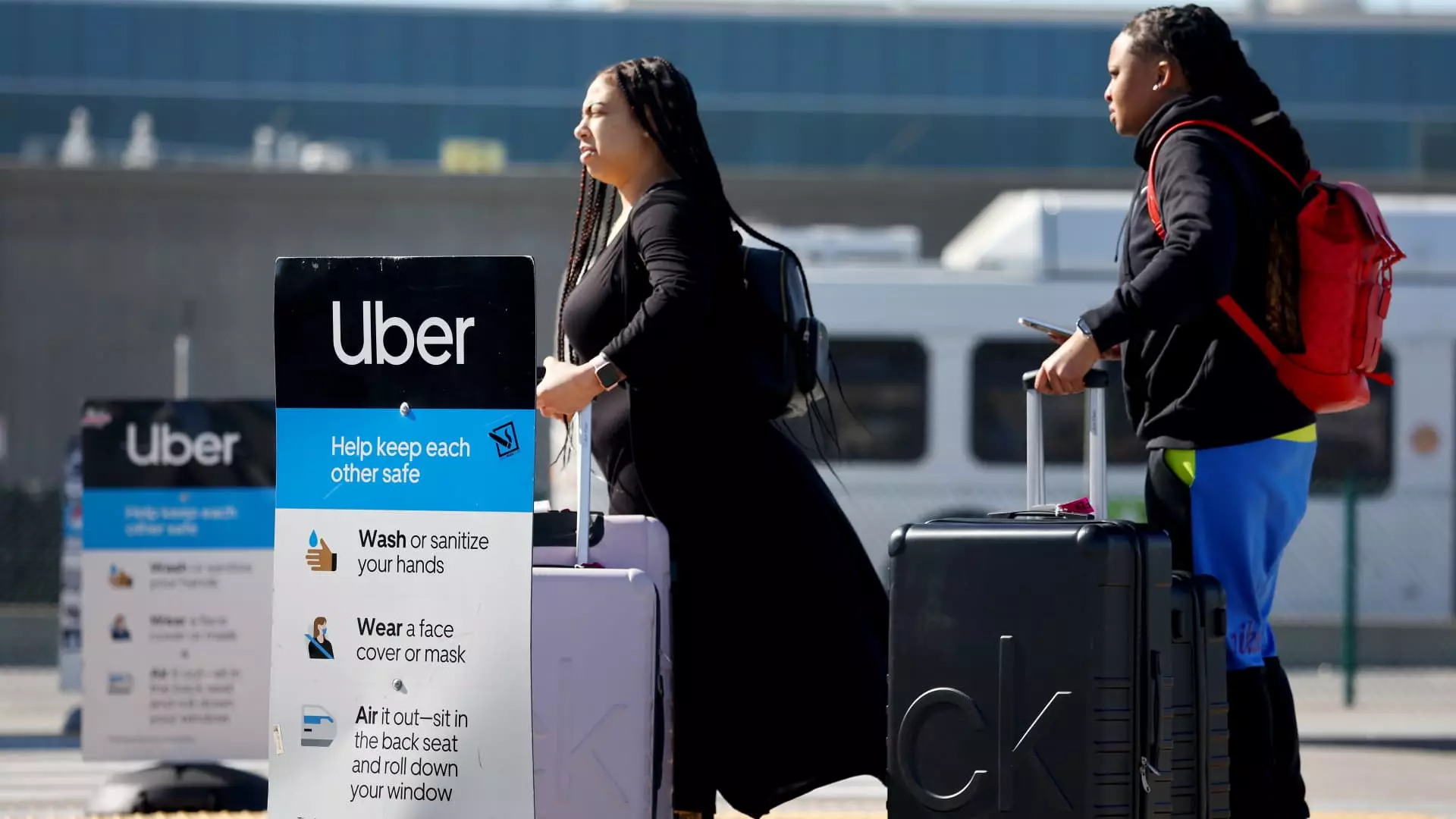In a significant pivot within the travel industry, Delta Air Lines recently announced a new partnership with Uber, taking over from its eight-year relationship with Lyft. This change is not merely a reshuffling of partners, but rather an evolution of Delta’s loyalty program that aims to enhance the customer travel experience. The transition points to the airline’s strategic efforts to further enrich its SkyMiles loyalty program. Customers will soon find themselves accumulating miles much more seamlessly during their travel journeys, especially when utilizing Uber services.
Delta has chosen to enhance customer loyalty through incentives that reward travel behavior, providing one mile for every dollar spent on standard UberX rides and increasing that to two miles for premium services. For those opting for Uber Reserve, customers can accrue three miles per dollar spent. This detailed tiering of rewards is geared towards encouraging more premium ride selections, which aligns with Delta’s broader objective of optimizing its value proposition to its SkyMiles members. Additionally, for Uber Eats users, a mile-per-dollar offer applies to orders exceeding $40—a savvy move to capture the growing market of food delivery as travel and dining experiences increasingly blend.
Understanding the Market Dynamics
The travel industry has undergone drastic changes over the last few years, particularly post-pandemic. More consumers are traveling than ever before, leading to an increase in demands for streamlined and efficient travel solutions. Uber’s CEO, Dara Khosrowshahi, underscored the need for efficiency, stating that the goal is to make airport travel “as efficient, affordable, and effortless as possible.” This sentiment is reflective of broader trends in travel consumerism, where convenience and seamless experiences reign supreme.
By collaborating with a well-established ride-hailing service, Delta is strategically positioning itself to tap into Uber’s vast user base and technology. Uber’s robust platform boasts an impressive 161 million monthly active users, while Delta’s desire to maintain relevance and enhance customer loyalty is underscored by this integration.
Loyalty programs have become crucial in generating ancillary revenue for airlines, and Delta’s SkyMiles program is no exception. By integrating its program with Uber, Delta expects to deepen the connection with existing customers while attracting new ones. The partnership also hints at financial implications that could prove beneficial to Delta’s earnings. The airline’s partnership with American Express, which has already projected a potential $7 billion revenue in 2024, underscores this trend.
Loyalty partnerships often lead to significantly increased customer spending, as they encourage repeat usage of services within a network of partners. The combination of airlines, ride-hailing services, and other affiliations like Starbucks and Ticketmaster creates a solid ecosystem where consumer behavior is catalyzed by rewards, thus enhancing profitability.
Delta’s decision to end its association with Lyft raises questions about the performance of existing partnerships within the industry. Lyft has expressed appreciation for its time with Delta, highlighting the mutual benefits reached during their partnership. However, those benefits are now transitioning to a more expansive Uber partnership, which promises to blend ride-hailing and airline travel more comprehensively.
As travel continues to evolve, where do other players fit into this landscape? Delta’s partnership adjustment serves as a reminder that brand affiliations are scrutinized and re-evaluated continuously to ensure that they align with changing consumer behaviors and expectations. Lyft, for instance, is reportedly shifting its focus, forging alliances with various brands, which indicates a potential reconfiguration of its strategy.
Delta’s new partnership with Uber is more than just a simple swap; it is a pivotal moment that reflects the evolving nature of travel. With rising expectations for seamless and personalized experiences, the implications of this union extend far beyond loyalty points. It demonstrates a keen understanding of market dynamics while positioning Delta strategically within an integrated travel ecosystem. Ultimately, customers stand to gain from this thoughtful evolution, as both companies strive to create enriched travel experiences through enhanced convenience and valuable rewards.

